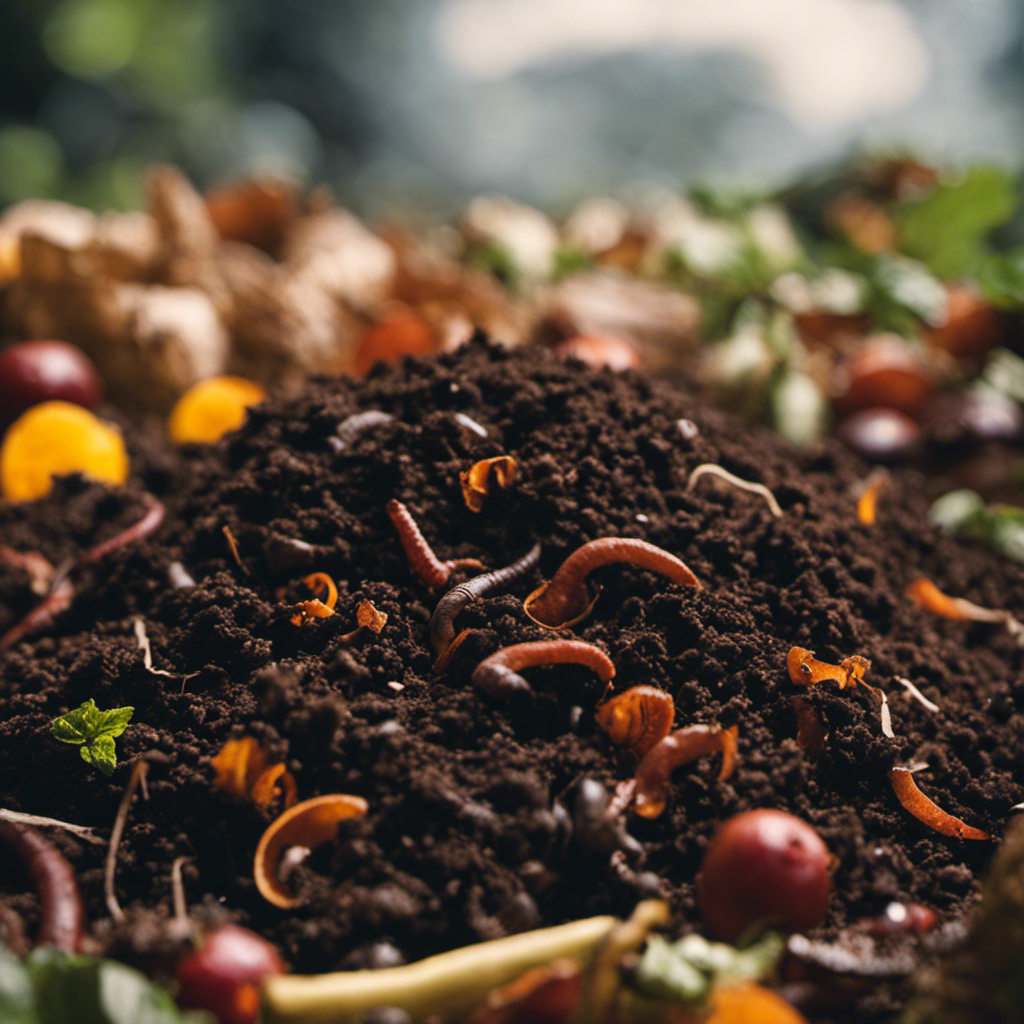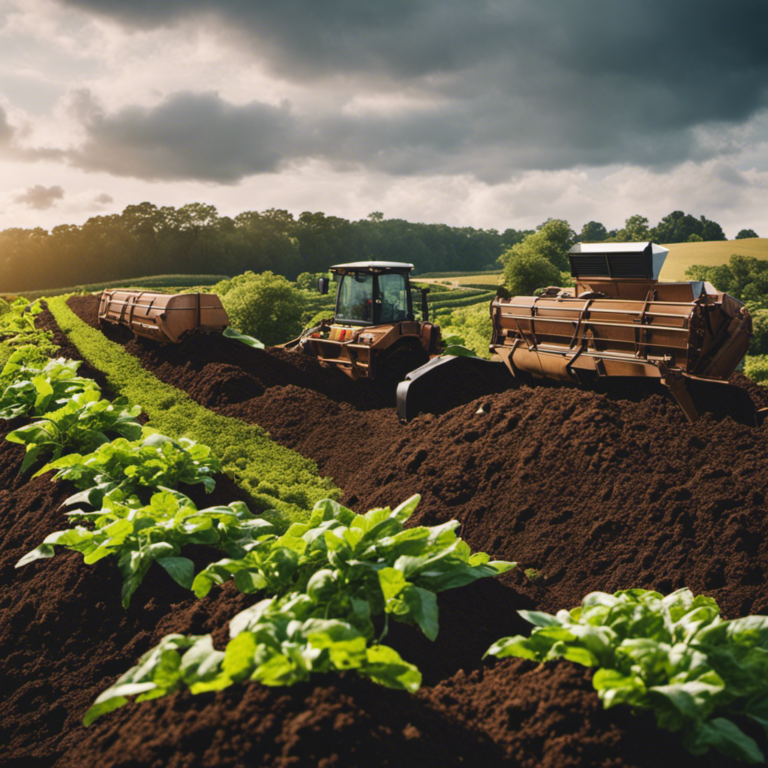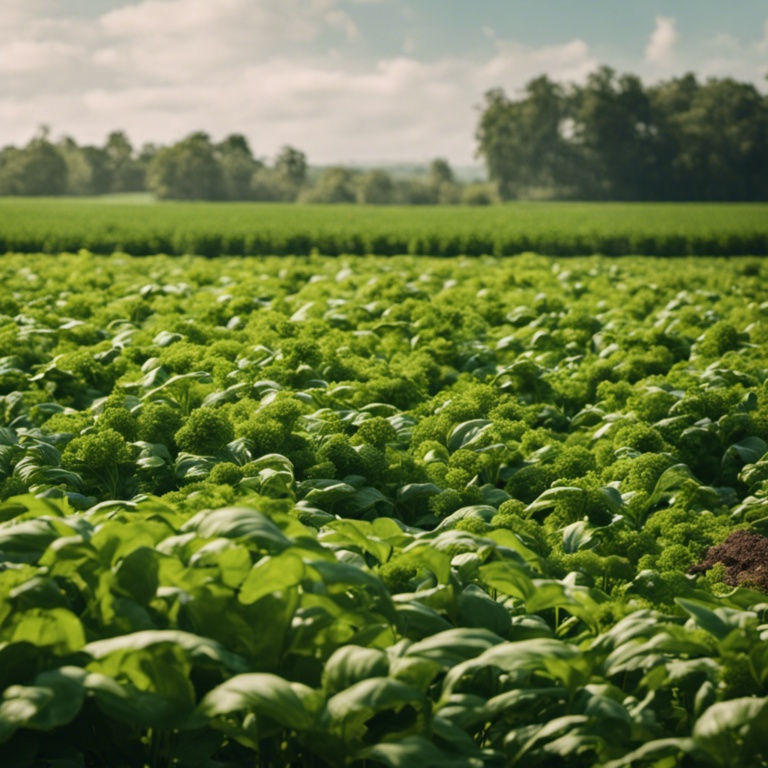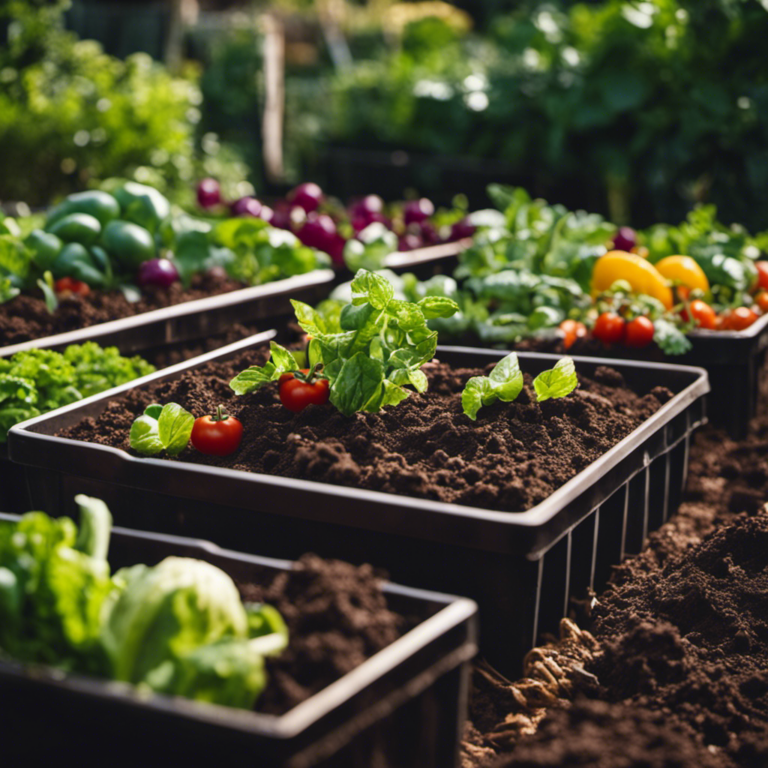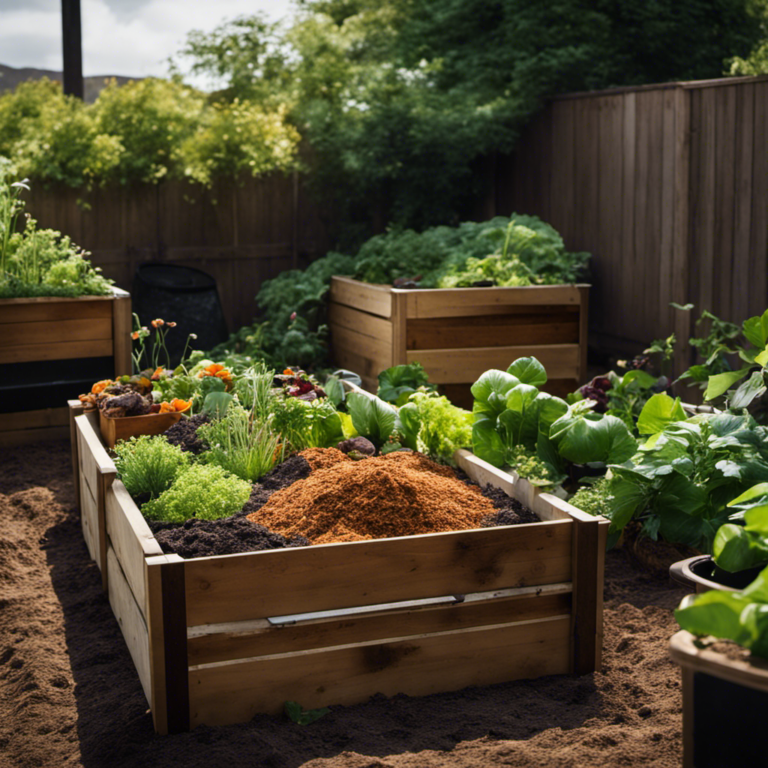I’m here to share some advanced tips for organic farming composting.
Let me guide you through the world of hot composting, vermicomposting, aerated compost tea, bokashi composting, and biochar amendments.
These techniques will help you enrich your soil, promote healthy plant growth, and reduce waste.
Get ready to delve into the wonderful world of composting and take your organic farming to the next level.
Let’s start serving our planet and nourishing it with sustainable practices.
Key Takeaways
Incorporating advanced composting techniques can greatly improve the success of organic farming. These techniques include hot composting, vermicomposting, aerated compost tea, bokashi composting, and biochar amendments. While some may argue that these methods require extra time and effort, the benefits they offer outweigh any initial challenges.
One major benefit of these practices is increased soil fertility, which leads to improved plant health. Additionally, organic farmers who implement these techniques can reduce their reliance on synthetic fertilizers. This not only contributes to sustainable agriculture but also helps create a healthier environment.
By utilizing advanced composting techniques, organic farmers can enhance the overall quality of their crops and promote a more sustainable approach to farming.
Hot Composting
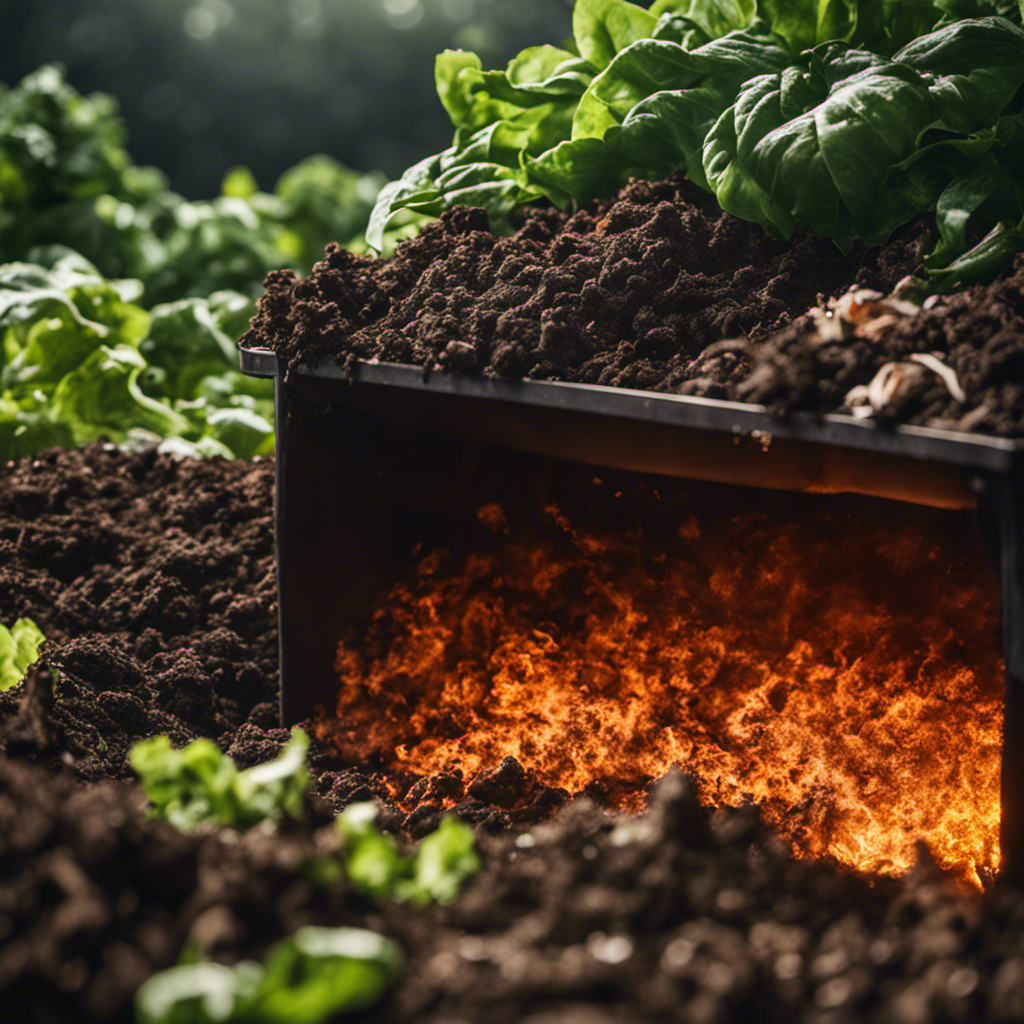
Hot composting is a highly effective composting technique that offers numerous benefits. It eliminates weed seeds and pathogens, accelerates the decomposition process, and produces nutrient-rich compost. When it comes to composting, hot composting is a technique that I find incredibly useful. It’s known for its ability to break down organic matter rapidly, making it one of the most effective composting methods available.
The process involves creating a pile of materials that generate high temperatures, which in turn accelerates the decomposition process. The advantages of hot composting are plentiful. First and foremost, hot composting eliminates weed seeds and pathogens that may be present in the organic matter. The high temperatures reached during the process ensure that these unwanted elements are destroyed, resulting in a healthier compost.
Additionally, hot composting breaks down the materials more quickly compared to other methods, allowing for a shorter composting period. Another advantage of hot composting is its ability to produce a nutrient-rich end product. The heat generated in the compost pile speeds up the breakdown of organic matter, resulting in a compost that’s rich in essential nutrients for plants. This nutrient-rich compost can then be used to enhance soil fertility and promote healthy plant growth.
Overall, hot composting is a highly effective composting technique that offers numerous benefits. It eliminates weed seeds and pathogens, accelerates the decomposition process, and produces nutrient-rich compost. By utilizing this technique, I’m able to create high-quality compost that serves as a valuable resource for my organic farming practices.
Quote: "Hot composting is an invaluable technique for organic gardeners, providing a quick and efficient way to break down organic matter and create nutrient-rich compost." – [Your Name]
Vermicomposting

In the world of organic farming composting, vermicomposting is a valuable technique that utilizes worms to break down organic matter and create nutrient-rich compost. This method offers several benefits and can be easily implemented with vermiculture techniques.
Here are four reasons why vermicomposting is beneficial:
-
Enhanced soil fertility: Vermicompost is rich in essential nutrients that can improve soil structure, retain water, and support healthy plant growth. By incorporating vermicompost into your soil, you can provide your plants with the necessary nutrients they need to flourish.
-
Waste reduction: Vermicomposting allows you to recycle kitchen scraps, yard waste, and other organic materials instead of sending them to landfills. By diverting these materials to your worm bin, you not only reduce waste but also contribute to a more sustainable environment.
-
Cost-effective: Setting up a vermicomposting system is relatively inexpensive compared to other composting methods. All you need is a worm bin, bedding material, and a population of worms. This affordable approach makes vermicomposting accessible to individuals on a budget.
-
Easy maintenance: Vermicomposting requires minimal effort and can be easily managed. Worms are efficient decomposers and can break down organic matter quickly. With proper care and maintenance, your worm bin can provide you with a steady supply of nutrient-rich compost.
Aerated Compost Tea
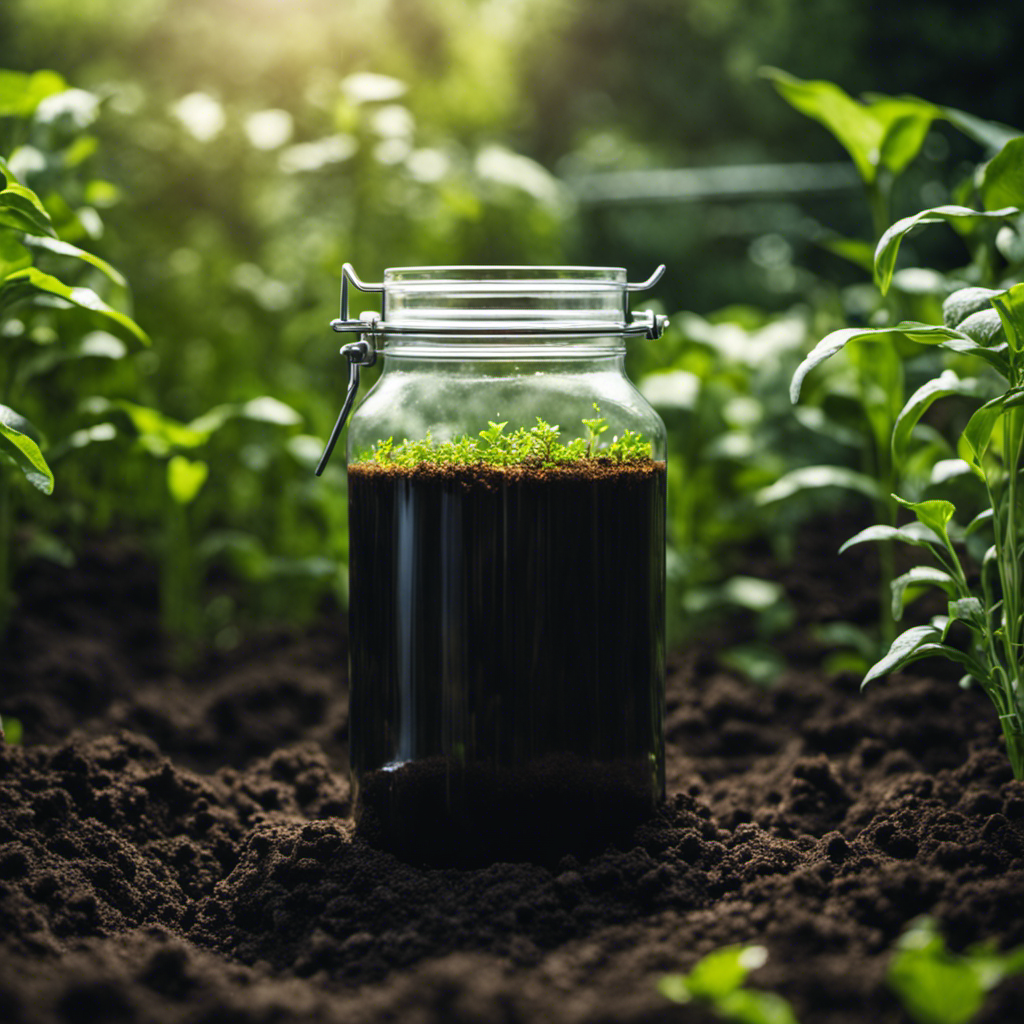
Aerated compost tea is a beneficial method for improving soil microbiology and promoting plant health. The process involves introducing oxygen into the water while steeping compost, which encourages the growth of beneficial microorganisms like aerobic bacteria and fungi.
The advantages of aeration in compost tea are numerous. Firstly, it helps release nutrients from the compost, making them more accessible to plants. Additionally, aeration suppresses harmful pathogens and pests by increasing the population of beneficial microorganisms that outcompete them. This results in healthier plants with improved resistance to diseases and pests.
To brew compost tea, the compost is steeped in water while providing aeration. This can be done using methods like an air pump or a compost tea brewer. The tea is typically brewed for 24 to 48 hours, allowing enough time for the microorganisms to multiply. Once brewed, the tea can be applied to the soil or foliage of plants to provide them with a boost of beneficial microorganisms and nutrients.
Bokashi Composting

Bokashi composting is a fermentation-based method that speeds up the decomposition of organic materials into nutrient-rich soil amendments. This process involves utilizing effective microorganisms to break down the organic matter quickly and efficiently.
Here are four reasons why bokashi composting is an excellent choice for organic farming:
-
Fast and efficient: The fermentation process in bokashi composting is much quicker compared to traditional composting methods. It only takes a few weeks to produce soil amendments that are rich in nutrients.
-
No unpleasant odors: Unlike other composting methods, bokashi composting doesn’t generate any foul smells. This makes it ideal for individuals living in urban areas or regions with strict composting regulations.
-
Versatile: Bokashi composting can be done both indoors and outdoors, making it suitable for various spaces. It doesn’t require much space or specialized equipment, making it accessible to everyone.
-
Nutrient-rich end product: The final product of bokashi composting is a soil amendment that’s packed with nutrients, enhancing soil fertility and promoting healthy plant growth. This makes it a great option for organic farming, as it provides essential nutrients to crops without relying on synthetic fertilizers.
Biochar Amendments
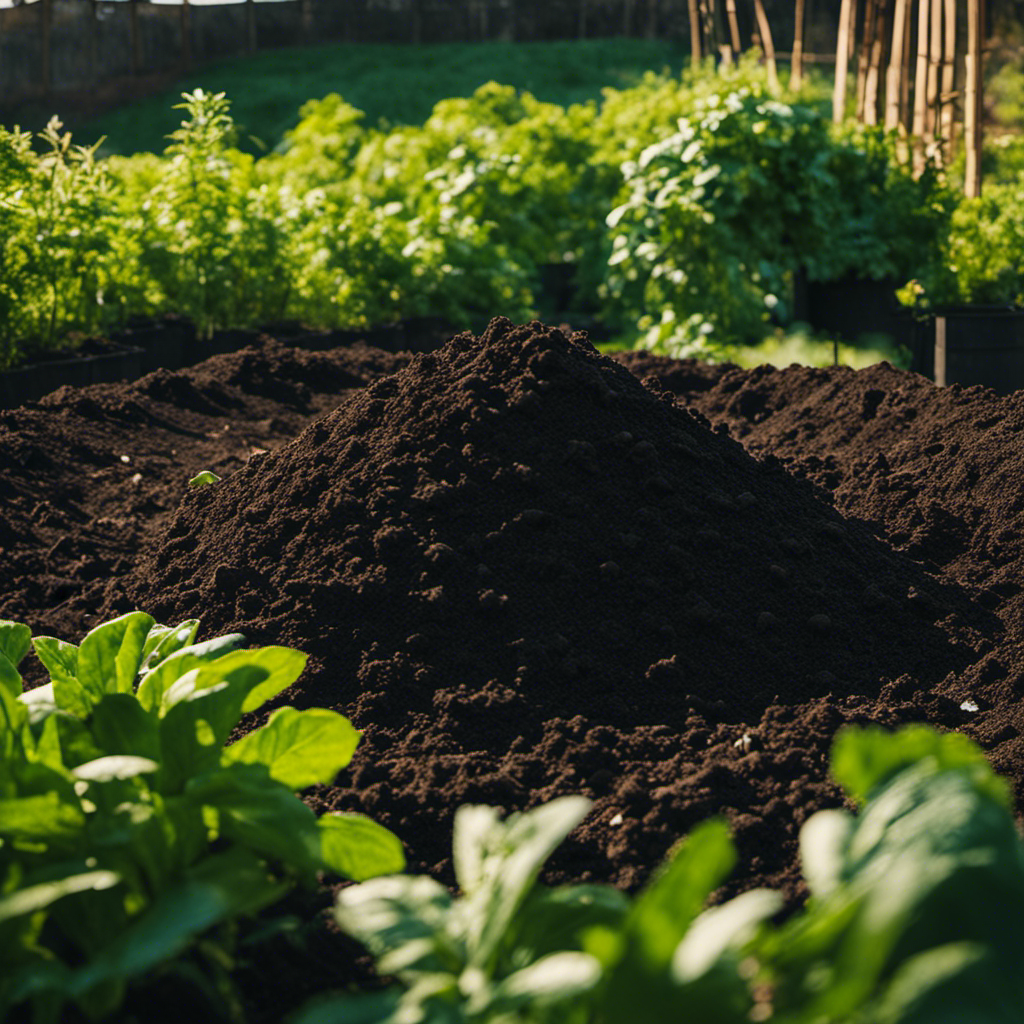
For organic farming, a highly effective method to improve soil fertility is by using biochar amendments. Biochar, a form of charcoal produced through pyrolysis, which involves heating organic materials without oxygen, can be added to the soil as a long-term soil amendment. This has numerous benefits for plant growth and soil health.
One of the main advantages of using biochar amendments is its ability to enrich the soil. Biochar has a high surface area and porosity, allowing it to retain water and nutrients in the soil. This improves soil structure, increases nutrient availability, and promotes root development. Additionally, biochar amendments can enhance soil microbial activity, leading to better nutrient cycling and overall soil health.
Another important benefit of biochar amendments is their ability to sequester carbon. When organic materials are converted into biochar, the carbon originally stored in these materials becomes stable and is stored in the soil for a long time. This helps mitigate climate change by reducing greenhouse gas emissions and promoting carbon sequestration.
To better understand the benefits of biochar amendments, let’s take a look at the table below:
| Benefits of Biochar Amendments | |
|---|---|
| Enhanced soil fertility | ✔️ |
| Increased nutrient availability | ✔️ |
| Improved soil structure | ✔️ |
| Enhanced microbial activity | ✔️ |
| Carbon sequestration | ✔️ |
Incorporating biochar amendments in organic farming practices can significantly contribute to soil enrichment, nutrient availability, and carbon sequestration. By utilizing this effective method, farmers can improve soil health, increase crop yields, and contribute to a more sustainable and resilient agricultural system.
Conclusion
Incorporating advanced composting techniques such as hot composting, vermicomposting, aerated compost tea, bokashi composting, and biochar amendments can greatly enhance the success of organic farming.
While some may argue that these methods require additional time and effort, the benefits they offer outweigh any initial challenges.
These benefits include increased soil fertility, improved plant health, and reduced reliance on synthetic fertilizers.
By implementing these practices, organic farmers can contribute to sustainable agriculture and create a healthier environment.
